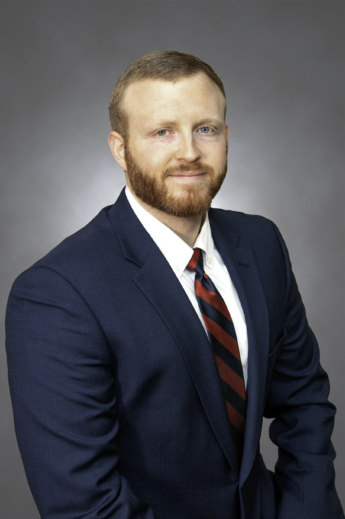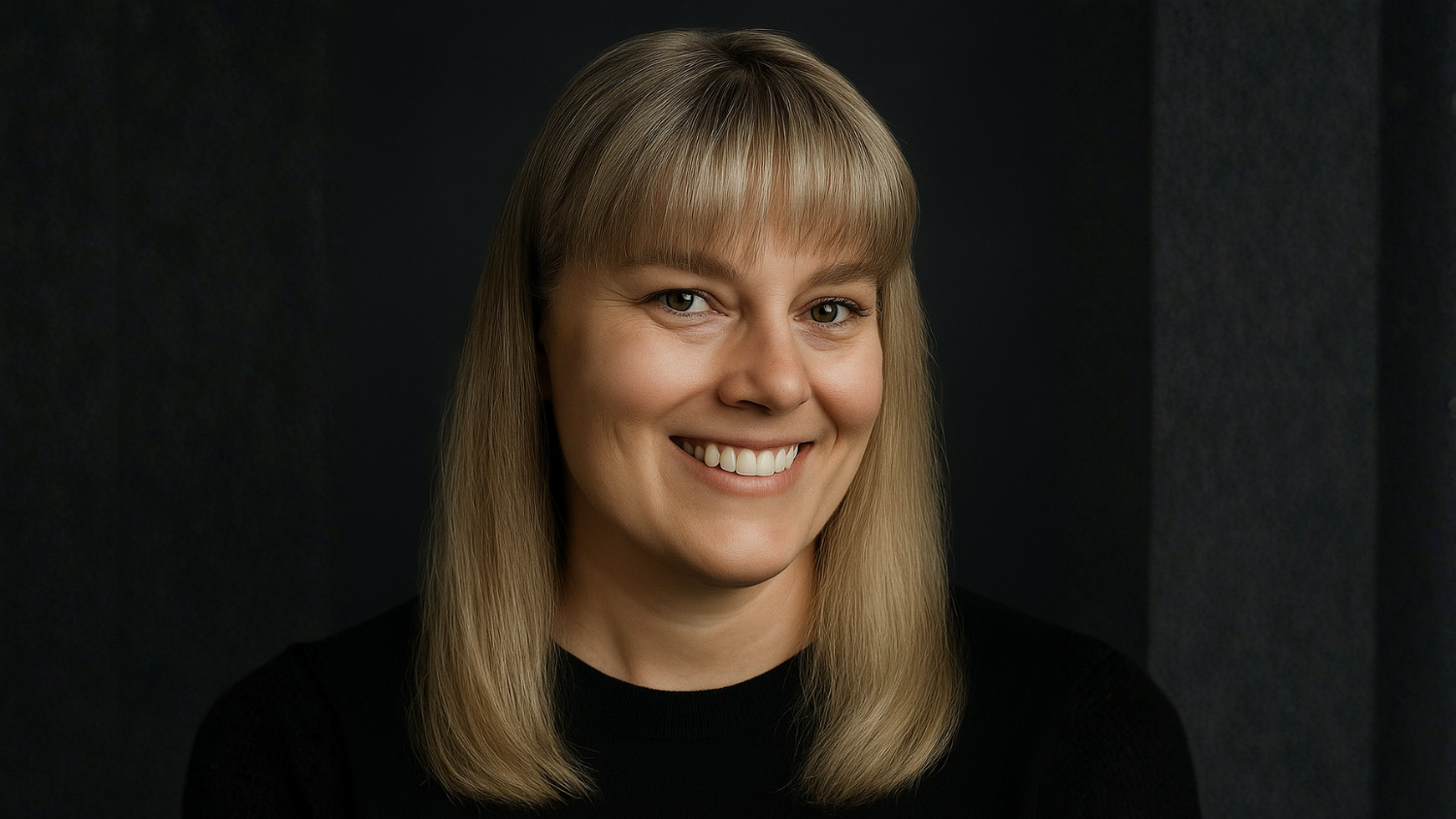Training and Development Graduates Share Their Stories

NC State Online brings together students from across the country and around the world. Even though they live states apart, two professionals pursuing a Master of Education in Training and Development share more in common than just their degrees. As they prepare to graduate from NC State in May, they’re sharing their stories with us.
Fatimah Patterson is an instructional systems designer for Booz Allen Hamilton, a consulting firm located in greater Washington D.C. She decided to obtain her M.Ed. in Training and Development with a goal to transition out of leadership and back into a full-time instructional systems design role.
Taylor Hansen is a learning designer for UNC Health and lives in Sanford, North Carolina. He joined the Training and Development program to refine his skills as a talent development professional and expand his knowledge of training and development.
Patterson and Hansen both come from military families — Patterson is a military spouse, and Hansen is a veteran of the United States Marine Corps. Each found that the program served their personal needs in a variety of ways, allowing them to successfully balance multiple priorities and draw from past experiences.
Why did you choose an M.Ed. in Training and Development from NC State Online?

FP: The M.Ed. in Training and Development at NCSU was one of the first programs that popped up during my research phase as one of the most distinguished programs offered for training and development in the state of North Carolina. I reached out to Dr. Michelle Bartlett to learn more about the program, and let’s just say the rest is history. Dr. Bartlett played a pivotal role in my decision-making process for graduate school selection. She asked me insightful questions and had a clear vision for how she sees the program and students evolving and growing in the future. Her passion for the students in the program really moved me and made me feel like I certainly was not just a number. I felt connected and a part of the Wolfpack family.
TH: Like many people, I found myself tossed into the domain of talent development. Although I was unsure whether or not the field was for me, I soon fell in love with training. Creating learning experiences that truly make people effective at their jobs has allowed me to find great meaning in my career. However, like all great practitioners in their field, I needed to expand my knowledge of talent development principles. That’s where NC State came into the picture. When searching for where to go to school, the decision was quite simple. NC State has a long and proud tradition of serving the needs of veterans, active-duty military personnel and their families. Additionally, NC State’s world-class distance education capabilities allowed me to complete my degree requirements while working full time. I could not be happier with my decision!
Describe your experience in the Training and Development Program.
FP: I have gained the skills, knowledge and valuable qualifications needed to be a successful instructional systems designer (ISD). I learned about emerging technologies, course creation, project management, technological applications for curriculum development and adult learning theory. Instructional design is foundationally rooted in thoughtful and purposeful logic. The knowledge, principles and applications I learned in the Training and Development program allowed me to gain a full-time position as an ISD with an amazing firm. I recommend this program to anyone who is looking to challenge themselves, grow and develop in the area of adult education and instructional design.

TH: When I began the M.Ed. program back in 2018, I felt there were a few large gaps in my understanding of training and development. I am a naturally curious person, so I am constantly challenging myself to learn something new within my field. A few weeks into my first semester, I came to the realization that there was a lot I did not know. However, the fantastic professors within the training and development program were introducing me to methods, theories, and ideas that invigorated my passion for the field. Although I am excited to graduate, I will miss being a student in the program.
How did you balance working and completing your degree?
FP: As a military spouse, mother of four boys and [full-time professional], time management was key. Oh, and don’t forget Poseidon, our Great Dane puppy. I lived by my organizer/planner. I have always been a driven individual, so I knew that discipline and time management was going to be the key to my success as a graduate student. I am grateful for Dr. Bartlett and the rest of the faculty for the constant communication and always being available to help if assistance was needed.
TH: Balancing working full time and completing my degree was not easy. However, being a military veteran, I am able to pull skills from my time in the Marine Corps such as time management, discipline and a drive to overcome obstacles, regardless of how they present themselves.
How do you see your M.Ed. in Training and Development helping you in your current career?
FP: The M.Ed. not only helped me secure a position as an ISD but has also assisted me in providing expertise to my clients. I love my job and derive a great sense of satisfaction from making a contribution that makes a difference.
TH: Many times, training and development professionals fall into the trap of developing and delivering training “the way we always have.” We get comfortable with our methods for training delivery and development. Given the radically changing external environment, this method can lead to bored and disenfranchised learners, poor learning gains and a negative view of an organization’s training department. My M.Ed. in Training and Development has helped me in my career by allowing me to challenge my current methods for developing learning experiences. Rather than being comfortable with my current methods for design and evaluation, I am able to tap into what I have learned in the M.Ed program to create training that is effective and situation-specific.
Did you have any faculty members who were particularly inspiring or stood out to you?
FP: Dr. Michelle Bartlett was particularly inspiring and stands out as an exceptional leader. She not only is extremely passionate about moving the program forward to be the best available to students, but she is also extremely passionate about all of her students. She was always available at any time I needed her, via all modes of communication. As a graduate student, it was very helpful to know that I could text her in the evening or weekend if work did not allow me to reach out to her during the workday. Dr. Bartlett is truly an expert in her field with continuous contributions to the field of Training and Development. I really like that we had many invitations to further our networking and industry knowledge by having emails for webinars and conferences.
TH: Dr. Bartlett and Dr. Ryan Rucker were both fantastic instructors! While challenging, their student-centered approach to online learning made the program that much more effective.
Would you encourage others to take an online program? If so, why?
FP: I have had such an amazing experience at NC State that my husband just started his first semester at NC State’s Geospatial Information Science and Technology graduate program. We all know that online learning has been on the rise in the past decade and most of us can see why this is the case. Convenience is one big reason why online learning has become so popular. The student dynamic continues to evolve, and students like myself need this convenience without there being a negative impact on the quality of education.
TH: I would challenge people to analyze their work habits prior to choosing an online program. If you are passionate about training and development, have the ability to manage time effectively and are comfortable with technology, I would absolutely recommend an online program.
For other working professionals who are thinking about continuing their education, some advice I would offer is:
- Enter all assignments and due dates into a calendar.
- Schedule video conferencing meetings with your peers (especially on group projects).
- Look for ways to apply what you are learning in class to your workplace.
- Take initiative on group projects, yet encourage those less outspoken to offer ideas.
- Leverage your working experience throughout the completion of projects along the way.
Congratulations to all of our NC State Online M.Ed. Training and Development graduates!
Are you interested in advancing your career with NC State’s online master’s degree or graduate certificate in Training and Development? Visit the program page or online.ncsu.edu for a full list of degree and certificate programs.
This post was originally published in DELTA News.
- Categories:


